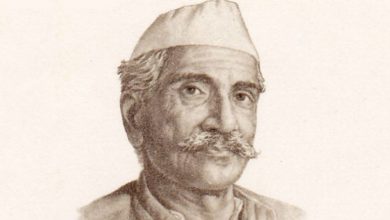Humanism: A Manifestation of Spirituality
Spirituality and humanism are intertwined with one-another. Spirituality is the basic source of human self-realization –identifying the self, while humanism in its basic spirit calls man to discharge his eternal duties at all levels, from individual to universal, and in all walks of life. In short, we can say that spiritually is a universal human experience to find meaning in life and humanism is the value system, the path to execute it. To derive the relationship between the two, it is necessary to first know them separately.
Spirituality is an awakening state of human spirit or soul rising above the mundane or material world, but it is in no way to be confused with anything supernatural. It is to be reborn not after death, but before death –reborn as an awakened soul. It, in fact, connects us with the natural order of the universe, from where we have come afar through our journey of being civilized. It is the acknowledgement of Divine spirit that lives within us and the re-unification of Atma –soul with Paramatma –supreme soul. It is also not to be confused with any religion. It is, in fact, a Dharma in itself, a set of beliefs, actions, meditation, an art of living and a science of purification of soul. As mentioned in the Vedas, it covers all dimensions of life, i.e., we can still be spiritual even while discharging our daily duties, we do not need to shun this world to achieve a spiritual sublimity. This is an attitude of perceiving every soul as a part of the supreme soul and connecting with the same. According to the Vedas, outer world is only a mirror of our inner world. What we think we perceive. It moves from inside to outside. Hence, it becomes essential that we declutter our mind and thoughts first and then our body followed by this world. Performing spiritual practices regularly is like becoming one’s own Anti-virus programme, keeping him away from all the junk that he carries around with him. Such a person emits a magnetic aura absorbing all within its ambit. Being in control of what we think and feel, can affect our IQ (Intelligence Quotient) as well by improving the way we feel, think and believe. A spiritual person remains detached of Maya –illusion of the material world even while living in it. He is aware of his identity as a soul and acknowledges the same in everything he sees. The Gita also propounds ‘renunciation not of action but in action’ –discharging one’s duties, but with a detached mind. It is a spirit of selfless action, which expands to being conducive to societal development.
Also Read: The Importance of Pangong Tso Lake for India
Humanism is to believe in the essential elements of humanity. It offers us to adopt eternal values and ideas without abandoning reason. Being a human-centric and secular approach, it is an absolute belief system that is based on reason and not on established beliefs. Humanism is a pragmatic approach based on spirituality. It focuses on the universal law of unity, discharging one’s duty for the common good. It offers tolerance, compassion, love, forgiveness and empathy respecting others’ rights, freedom and choices creating harmony of relationships. A humanist always values the dignity of every other individual irrespective of his caste, nationality, religion or gender giving rise to a global society observing world peace and social justice. A humanistic approach is a consistent belief in the existence of divine nature in all elements of the universe.
Now the question arises, if spirituality and humanism are two different terms, how are they similar and how can they affect each other? To understand this, we need to understand that spirituality is an interpersonal practice leading to the intra-personal practice, humanism. Spirituality gives us an insight to identify the connection of soul with the supreme soul, and humanism executes this knowledge in action.
The next question is where do our spirituality, sense of communion and commitment to moral values spring from? How can one be spiritual in action and daily practices? For most people think that such values are transferred to us by our ancestors or culture or society, we cannot choose them. But, the truth is that spirituality is a chosen aspect of human behaviour, which we call ‘integral humanism’. Gandhiji, one of the great humanists the world ever had in its entire history emphasized this integral humanism when he talked about seven social sins, which he considered as the seven dangers to human virtues: 1-Politics without principles; 2-Wealth without work; 3-Commerce without morality; 4-Knowledge without character; 5-Pleasure without conscience; 6-Science without morality; and 7-Worship without sacrifice. The Mahatma always stuck to his belief that as a true humanist, we should worship God through the service of man and see this world as a manifestation of God himself, only then we can fulfil our duties unto Him. This integral humanism works at three planes viz-a-viz Spiritual Quotient (SQ), Emotional Quotient (EQ) and Intelligence Quotient (IQ). SQ means the intelligence to balance inner and outer peace in all situations by using wisdom and compassion. This calls for self-mastery, vision, universal law of unity, being aligned through thick and thin of life cycle. EQ is the manifestation of SQ in behaviour and thinking. It calls for adaptability, controlling one’s emotions and feelings, remaining calm even in adversity, connecting with one’s fellow beings and other elements of nature, harmonizing intra-personal relationships, conflict resolution and execution of every task intelligibly and coolly. IQ is also a manifestation of the SQ in one’s personal wisdom to differentiate between right and wrong, forming opinions on the basis of one’s own experiences instead of the established beliefs, seeing everything with a scientific bent of mind. It is a life-long process of honing one’s intelligence to acquire knowledge and reason and then using it to solve one’s problems. Therefore, we can say that SQ is the prerequisite for the proper functioning of one’s EQ and IQ.
It can be concluded that if one develops a sense of self-realization, intelligence of soul, one can develop a sense of empathy, love and compassion building his own set of moral values, beliefs and perspectives on the basis of his increased human intelligence. A spiritually awakened person is not a problem-finder, but a solution-finder. He goes through a metamorphosis from being body conscious to being soul conscious, from being to becoming. Instead of resisting the current situation, he learns to accept it and never grieves over what is not in his control. He loses all sense of ‘I, me and mine’ and develops a sense of ‘we, us, ours’ in the aspect of fundamental oneness. He performs all actions without attachment to their outcomes. Such a person is never afraid of losing any thing in life, as she or he has realized that all worldly things are impermanent. He always uses the power of his inner self to achieve his goal. He is always a happy person and nothing makes him feel unhappy and miserable.

(An Indologist Dr. Ravindra Kumar is a Former Vice Chancellor of CCS University, Meerut; He is also the Editor-in-Chief of Global Peace International Journal. )





